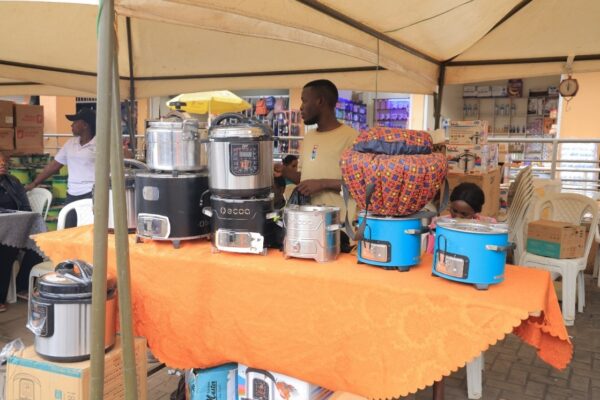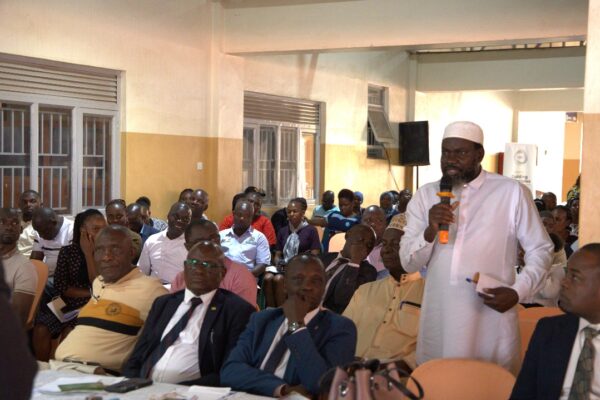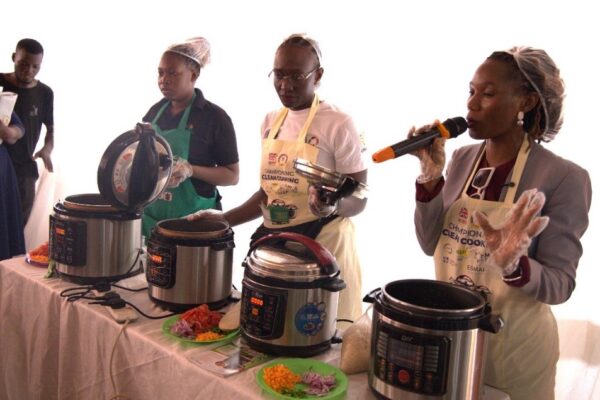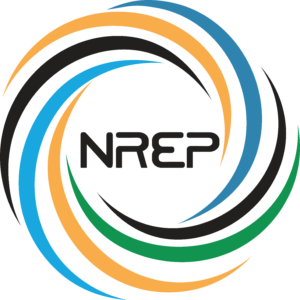Promoting Clean Cooking in Masaka City: BCCEC Campaign Success
From January 27th to 31st, 2025, Masaka City buzzed with energy as the National Renewable Energy Platform (NREP) in collaboration with Uganda National Alliance on Clean Cooking (UNACC) spearheaded a transformative campaign aimed at shifting the community toward cleaner, more efficient cooking practices. The Behavioural Change Communication for Electric Cooking (BCCEC) initiative showcased the benefits of Electric Pressure Cookers (EPCs) through engaging workshops, live cooking demos, and an extensive exhibition that drew hundreds of residents to experience a taste of the future of cooking.
Engaging the Community
The campaign’s success was driven by a series of dynamic events designed to educate and inspire:
- Workshops and Exhibitions: Over 300 participants attended specialized workshops, with a broader audience experiencing the five-day exhibition at Masaka Central Market. The event featured hands-on demonstrations that illustrated how EPCs can drastically reduce cooking time while enhancing the nutritional value of meals.

- Radio Talk Shows: In a bid to reach a wider audience, experts took to the airwaves to address common concerns about electric cooking. They emphasized that EPCs offer numerous benefits:
- Faster meal preparation
- Enhanced nutrient retention due to quick, high-heat cooking
- Simplified cleaning, as most dishes can be prepared entirely within the cooker
- Lower energy consumption compared to traditional cooking methods
- Versatility in preparing a variety of meals, from meats and vegetables to soups and stews
- The convenience of cooking frozen foods directly without thawing
- Built-in safety mechanisms for accident prevention
- Public Q&A Sessions: These interactive sessions provided clear answers to common queries about affordability, energy use, and appliance durability. Attendees learned about government subsidies, innovative cooking tariffs like ‘Ffena Tufumbe,’ and local repair services that ensure EPCs remain a practical and accessible choice.

- Public Q&A Sessions: These interactive sessions provided clear answers to common queries about affordability, energy use, and appliance durability. Attendees learned about government subsidies, innovative cooking tariffs like ‘Ffena Tufumbe,’ and local repair services that ensure EPCs remain a practical and accessible choice.

Demonstrating Benefits in Real Time
Live cooking demonstrations were the highlight of the campaign, vividly showcasing how EPCs not only save time but also reduce energy costs. Attendees witnessed firsthand the ease and efficiency of cooking with EPCs, making it clear why this technology represents a smart investment for both households and the environment.

A Closer Look at the Impact of Clean Cooking
Beyond the immediate practical benefits, the campaign underscored several long-term advantages of embracing clean cooking technologies:
- Health Improvements: Shifting away from traditional fuels such as wood, charcoal, and kerosene significantly reduces indoor air pollution. This, in turn, lowers the risk of respiratory and heart diseases, particularly benefiting women and children.
- Environmental Gains: By reducing the reliance on fossil fuels, clean cooking solutions help curb deforestation and cut down on carbon emissions, contributing to broader climate change mitigation efforts.
- Economic Advantages: The use of EPCs can lead to considerable savings on fuel costs and reduce the time families spend gathering traditional fuels. This extra time and money can then be channeled into education, work, and other productive activities.
- Social Empowerment: Given that cooking responsibilities typically fall on women, clean cooking not only enhances their safety by reducing exposure to harmful smoke but also frees up time for education and entrepreneurship.
Voices from the Community
Local leaders and stakeholders played a pivotal role in the campaign, voicing both enthusiasm and realistic challenges:
- Deputy RCC Nabakooza Josephine lauded the government’s outreach efforts and encouraged everyone to adopt clean cooking methods for better health and energy efficiency.
- Deputy Pookino Owek. Kibudde Fred highlighted the importance of grassroots awareness initiatives and urged the government to ensure that clean cooking appliances are easily accessible through enhanced distribution channels.
- Rev Father Kizito Nswa Nkonge pointed out the difficulties faced by large institutions, like schools, where high fuel costs and logistical challenges make traditional cooking unsustainable.
- Dr. Mukisa Nicholas, PhD (Deputy National Coordinator, NREP) closed the workshop with a call to action, thanking the community and urging all participants to champion the clean cooking transition.
Looking Ahead
The BCCEC campaign in Masaka City marks a significant step forward in promoting sustainable, clean cooking practices. By engaging key decision-makers and fostering direct community involvement, NREP is laying a solid foundation for a cleaner, healthier future. With initiatives like these, the path toward widespread adoption of clean cooking solutions becomes clearer, driving economic, environmental, and social progress.
Join us in celebrating this milestone and explore how clean cooking can transform your kitchen and community.



